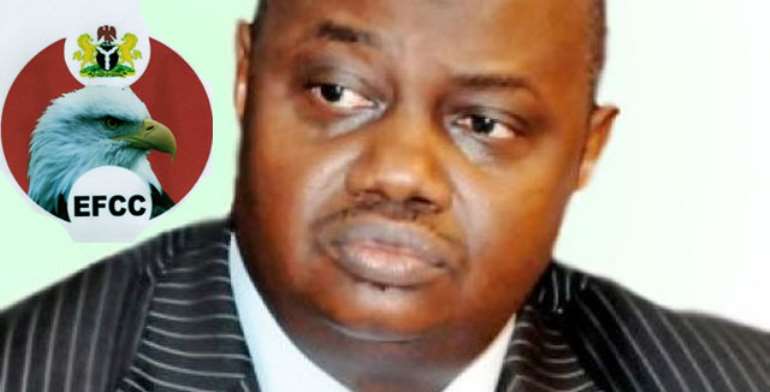Jonathan starved EFCC of funds -Lamorde

Chairman of the Economic and Financial Crimes Commission (EFCC), Mr. Ibrahim Lamorde, on Monday blamed the outgoing Jonathan administration for its poor performance, as it lamented that the administration starved it of funds to prosecute fraud cases.
Speaking through the commission's spokesman, Wilson Uwujaren, the EFCC boss, who is hoping the incoming government will increase funding for the agency, ‎subtly blamed its inability to tackle corruption on poor funding from the outgoing government.
According to Uwujaren, 'we are happy that the incoming government is making the fight against corruption one of its cardinal objectives. Every Nigerian is happy about that. EFCC has been doing this for more than 11 years. We are proud of what the incoming administration wants to do.
'We need an administration that will look at what we are doing and empower us sufficiently to enable us make more impact than we have ever done in the past. We welcome the focus and we believe Nigeria needs to tackle this fight more rigorously for us to make the needed impact.'
Meanwhile, the EFCC may have concluded plans to declare former Borno State Governor Ali-Modu Sheriff wanted.
The recent move by the EFCC is tied to his alleged refusal to appear before it to answer to some charges.
Sheriff, who is believed to ‎be a close ally of outgoing President Goodluck Jonathan, might be haunted down and subsequently arrested by the EFCC operatives, who are apparently in a hurry to be in the good books of the incoming government of Muhammadu Buhari.
'We invited him (Sheriff) for questioning. As I speak to you, he did not honour that invitation. Once the commission invites a suspect in a matter and he fails to honour the invitation, options are opened to us. We might declare him wanted. Yes, we might do that,' Uwujaren said.
The EFCC had last month invited Sheriff over the handling of N300 billion his administration received from the Federation Account between 2003 and 2011. The investigation began in 2012 and had been ongoing ever since.
‎Uwujaren equally reeled out series of achievements recorded by the agency in over 10 years of its existence, claiming significant progress had been made in the prosecution of former governors. He said assets belonging to some of the ex-governors had been seized, while money running into billions of dollars had been recovered on behalf of the Nigerian government.
'It is important to recall some of the milestones achieved by the commission in the investigation, prosecution and recovery of assets of politically exposed persons, including ex-governors,' Uwujaren noted.
He faulted rumours that the EFCC was involved in under-hand deals regarding seized assets and frozen accounts of suspects
